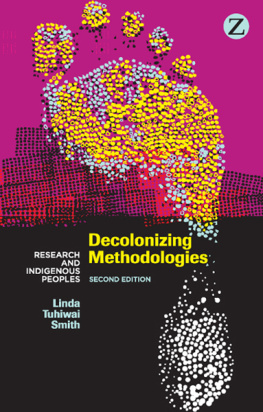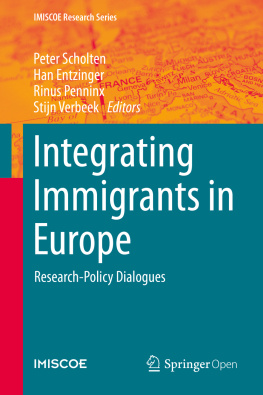Smi Research in Transition
For several decades now, there have been calls to decolonize research on the Indigenous Smi people, and to make it accountable to the Smi society. While this has contributed to the rise of a vibrant Smi research community in the Nordic countries, less attention has been paid to what extent, and how the Smi turn in research has been implemented in practice. Written by prominent Nordic and Smi scholars anchored in the Smi research communities in Finland, Norway and Sweden, this volume explores not only the meanings and implications of this turn across disciplines, but also some of the challenges that efforts to create space for Smi voices, knowledges and perspectives still meet today. The book provides a timely, interdisciplinary engagement with the central themes that have framed the development of Smi research, and a critical appraisal of the impact that efforts to decolonize research in the Smi context have had upon Nordic societies and state policies so far. Smi Research in Transition is particularly valuable for scholars and students interested in Smi history and society, Arctic and Circumpolar Indigenous studies and critical studies on the relationship between knowledge and social change.
Laura Junka-Aikio is a Finnish scholar who currently works as a Marie Sklodowska-Curie Individual Fellow and as project leader for the Norwegian Research Council funded research project New Smi Renaissance: Nordic Colonialism, Social Change and Indigenous Cultural Policy at the Arctic University Museum of Norway, UiT The Arctic University of Norway. Her research is currently concerned with the relationships between politics of knowledge, identity, contemporary colonialism and social change.
Jukka Nyyssnen Dr.art., project leader of Societal Dimensions of Smi Research, worked during most of the project at UiT The Arctic University of Norway in The Arctic University Museum of Norway. He currently works as a senior researcher in the High North department of the Norwegian Institute for Cultural Heritage Research (NIKU). Nyyssnen has published widely on Sami history, e.g. in the fields of environmental history, educational history and history of science.
Veli-Pekka Lehtola is a (North) Smi from the Aanaar or Inari in Northern Finland anda professor of Smi culture in the Giellagas Institute for Smi Studies at the University of Oulu, Finland. Lehtola specializes in the history of the Smi and Lapland, in Smi representations as well as in modern Smi art.
Smi Research in Transition Knowledge, Politics and Social Change
Edited by
Laura Junka-Aikio, Jukka Nyyssnen, and Veli-Pekka Lehtola

First published 2022
by Routledge
2 Park Square, Milton Park, Abingdon, Oxon OX14 4RN
and by Routledge
605 Third Avenue, New York, NY 10158
Routledge is an imprint of the Taylor & Francis Group, an informa business
2022 selection and editorial matter, Laura Junka-Aikio, Jukka Nyyssnen and Veli-Pekka Lehtola; individual chapters, the contributors
The right of Laura Junka-Aikio, Jukka Nyyssnen and Veli-Pekka Lehtola to be identified as the authors of the editorial material, and of the authors for their individual chapters, has been asserted in accordance with sections 77 and 78 of the Copyright, Designs and Patents Act 1988.
All rights reserved. No part of this book may be reprinted or reproduced or utilized in any form or by any electronic, mechanical, or other means, now known or hereafter invented, including photocopying and recording, or in any information storage or retrieval system, without permission in writing from the publishers.
Trademark notice: Product or corporate names may be trademarks or registered trademarks, and are used only for identification and explanation without intent to infringe.
British Library Cataloguing-in-Publication Data
A catalogue record for this book is available from the British Library
Library of Congress Cataloguing-in-Publication Data
A catalog record has been requested for this book
ISBN: 978-0-367-54838-4 (hbk)
ISBN: 978-0-367-54843-8 (pbk)
ISBN: 978-1-003-09083-0 (ebk)
DOI: 10.4324/9781003090830
Typeset in Sabon
by MPS Limited, Dehradun
Contents
- Smi research in transition an introduction Laura Junka-Aikio, Jukka Nyyssnen, And Veli-Pekka Lehtola
- PART I From Lappology to Smi research
- Society, ethnicity and knowledge production changing relations between Norwegians and Smi Ivar Bjrklund
- Choices and omissions of knowledge and social impact in Finnish committee reports on Smi policies Jukka Nyyssnen
- Contested Smi histories in Finland Veli-Pekka Lehtola
- Self-Indigenization, Smi research and the political contexts of knowledge production Laura Junka-Aikio
- From research on Smi handicraft to duodji research Sigga-Marja Magga
- PART II Negotiating the Smi turn
- Smification and Smi museums ile Aikio
- Indigenous journalism in academia Smi journalism education breaks new ground Lia Markelin, Tom Moring, Charles Husband, Nils Johan Heatta, Nils Johan Pivi, And Liv Inger Somby
- We haven't come so far yet: digital media, Smi research and dissemination practices Copplie Cocq
- Negotiating research: studying Smi photographs as Norwegian outsiders Sigrid Lien And Hilde Wallem Nielssen
- Mapping prerequisites for successful implementation of an academic concept to societal arenas: The case of the non-status Smi in Finland Anni-Siiri Lnsman And Terttu Kortelainen
- Smi research ethical guidelines: reflections on a contact zone of Smi and dominant society Lydia Heikkil
- Ten problems faced by a Smi who studies her own community Saara Alakorva
Figures
- 11.1 Number of publications mentioning the non-status Smi concept in different forums
- 11.2 Channels of social media
- 11.3 Frames used in the articles and blogs
- 11.4 Interplay between social and traditional media and attention from the public
Contributors
ile Aikio, Luobbal-Smmol-Aimo ile by her Smi name, works as a doctoral candidate at the University of Lapland. Aikio has an M.A. in ethnology from the University of Helsinki. Her main research focus areas are indigenous museums and the indigenization of museum practices.
Saara Alakorva, Piera-Jovnna-Leena Saara by her Smi name, is a Lecturer in Arctic World Politics and a doctoral candidate at the University of Lapland. Alakorvas Ph.D. research focuses on Smi political history and contemporary Smi political thinking.
Ivar Bjrklund works as a professor emeritus at UiT The Arctic University of Norway in The Arctic University Museum of Norway. His research interests include ethnohistory, resource management and pastoral adaptations.
Copplie Cocq Ph.D. is a professor of European ethnology at the University of Helsinki, Finland and a Professor of Smi Studies at Ume University, Sweden. Cocqs research focuses on digital practices in Smi, Indigenous and minority contexts. Ethical and methodological perspectives on digital research are other topical issues in her research.
Nils Johan Heatta has worked as a sound and video engineer, and as a journalist. From 1985 until 2015, he was director of Smi Broadcasting in Norway (NRK Spmi) and a journalist with NRK Spmi. Heatta has been active in the collaboration between Smi radio and TV stations in Finland, Sweden and Norway. In 2000, Heatta initiated a project to restart Smi radio broadcasts on the Kola Peninsula; the station in Russia started their broadcasts on 31 December 2003. He has been a member of the executive committee of the World Indigenous Television Broadcasters Network (WITBN) since the organization was founded in 2008. Heatta was chairman of WITBN from March 2012 to June 2014. After leaving the media, Heatta was employed for a short period as a head of department at the Smi University of Applied Sciences.





